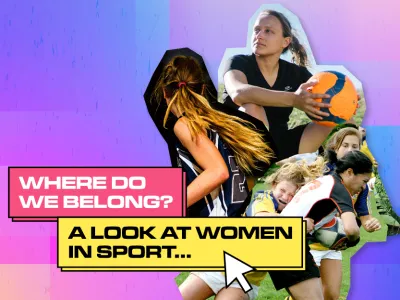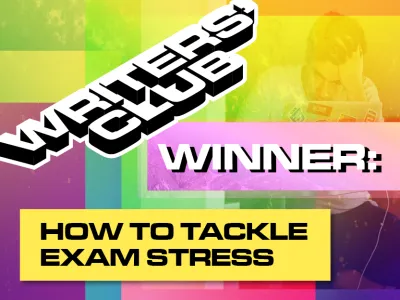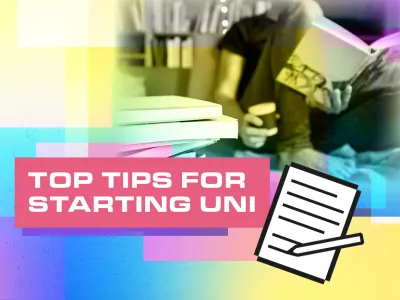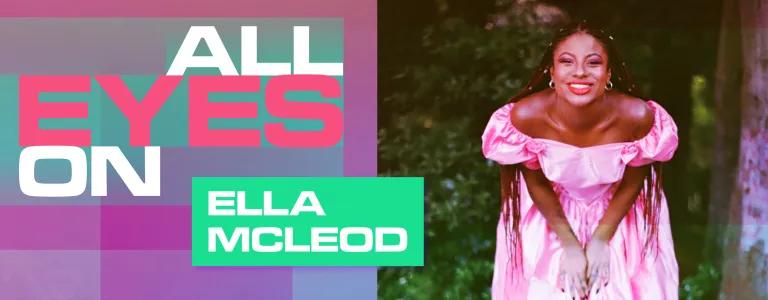
All Eyes On: Ella Mcleod
Include this article in your Skills Builder Journal. It could help you develop... 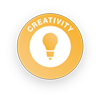
On this edition of All Eyes On, we sat down with Ella McLeod, who has just released her debut novel Rapunzella, or, Don't Touch My Hair…
Your debut book - Rapunzella, Or, Don’t Touch My Hair - has just come out! What made you want to reimagine a classic fairytale?
I wanted to use familiar imagery and culture touchstones to challenge things we take for granted, for example the messaging we receive around what is and isn’t beautiful. Black hair has been politicised by a society founded on white supremacy and I wanted to challenge the archetype of the fair maiden with flowing golden hair, waiting to be rescued by a handsome Prince Charming in every way I could.
You combine poetry and prose throughout the book. What came first for you when you started writing - and what does each style mean to you?
The poetry came first and I interrogated the role that poetry played in fairytales while working on my dissertation, which was essentially Draft One of Rapunzella, while in my final year of uni. As I began to turn that initial draft from a 5000 spoken word piece into a novel, I used poetry to play with voice. So much of how I relate to my Caribbean history is through story, poetry and song. Both as a result of engaging with other amazing artists of Caribbean descent like Benjamin Zephaniah, as well as the oral storytelling tradition that is so central to Afro-Caribbean culture. I wanted to use poetry to weave a link through time, between fairytale and the voice of my grandparents telling me stories of their home. I use prose to present a contrast to this, but also to find poetry in the everyday, to find poetry where it doesn’t initially seem to be. It’s a subtler job in a way, but I wanted the forms to feel familiar to a reader for different reasons.
What challenges did you face along the way with your book and how did you overcome them?
Persistence, perseverance, luck and an amazing support network! I sent lots and lots of emails to agents and then even when I was signed and writing with my publisher I faced writer’s block, family illness, and having to juggle all my other jobs while still making time to write. But honestly the fear of not creating what I think needs to be created, and not saying what needs to be said, really drives me.
You do lots of different things alongside writing! You’re a performer, a spoken word poet, a podcast producer…did these things come naturally or were they all things you knew you wanted to do?
When I was young podcasts didn’t exist and it honestly never occurred to me that writing and poetry could actually be my job. It seemed absurd! I didn’t even dare dream of it because most of the writers I was exposed to as a young person were old (often dead) white men from distinguished families. But I always knew I wanted to tell stories, and so I’ve just been looking for as many varied ways to do that as I can, trying to find my voice along the way.
With lots of things under your belt already, what are you most proud of?
This book is probably number one. It’s been so challenging for so many different reasons but now that it’s going to be out in the world, I’m proud that I made it here. Also my mental health. I’ve had bad bouts of depression, anxiety, and OCD but have worked to care for myself, setting boundaries, doing things I love, going to therapy, and talking to people who care for me. Writing has taught me to be more vulnerable and having learned that sharing a piece of yourself is terrifying but often so rewarding, I’m getting better at opening up when I’m struggling and asking for help.
Do you have anything in the pipeline for the future?
Yes! Lots! Some things that I can’t talk about yet! But I can say that I’ve started writing another YA fantasy, similar but also very very different to this one, and have also started writing a picture book for under five year olds.
What advice would you give to young people out there who want to do something similar to you, or are trying to turn their creativity and passion into something tangible?
I think firstly decide if you love the thing enough to work at it even when it pushes you to your limit. It’s okay for passions to not become something tangible and to stay as the thing that gives you joy. Next I would say figure out what is necessary and figure out what is helpful. Is that further study? A person or space that will
facilitate your practice? An agent or maybe a place to showcase your work? After that it really is just about sending hundreds of emails, practising your craft and continuing to consume the world around you.
This can mean reading widely, watching lots of different films, or listening to lots of different types of music. But also, speak to people. Engage with your material. Learn to find inspiration in tiny human interactions as much as huge, cataclysmic world-changing events. And make sure that you have one thing - be it a sport, or cooking, or something else creative - that is just a source of joy and not work. It doesn’t even have to be something you’re very good at. It just has to make you happy!


